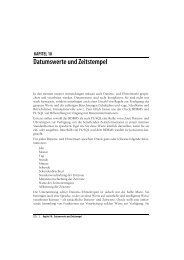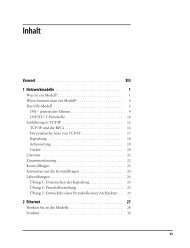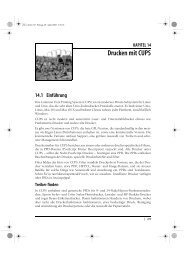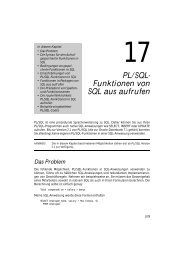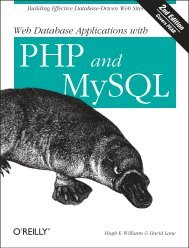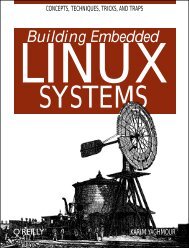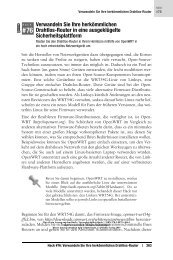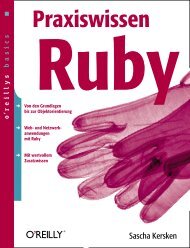Advanced Disk Cache Topics
Advanced Disk Cache Topics
Advanced Disk Cache Topics
Create successful ePaper yourself
Turn your PDF publications into a flip-book with our unique Google optimized e-Paper software.
Chapter<br />
CHAPTER<br />
8<br />
8<br />
<strong>Advanced</strong> <strong>Disk</strong> <strong>Cache</strong> <strong>Topics</strong><br />
Performance is one of the biggest concerns for Squid administrators. As the load<br />
placed on Squid increases, disk I/O is typically the primary bottleneck. The reason<br />
for this performance limitation is due to the importance that Unix filesystems place<br />
on consistency after a system crash.<br />
By default, Squid uses a relatively simple storage scheme (ufs). All disk I/O is performed<br />
by the main Squid process. With traditional Unix filesystems, certain operations<br />
always block the calling process. For example, calling open( ) on the Unix Fast<br />
Filesystem (UFS) causes the operating system to allocate and initialize certain ondisk<br />
data structures. The system call doesn’t return until these I/O operations complete,<br />
which may take longer than you’d like if the disks are already busy with other<br />
tasks.<br />
Under heavy load, these filesystem operations can block the Squid process for small,<br />
but significant, amounts of time. The point at which the filesystem becomes a bottleneck<br />
depends on many different factors, including:<br />
• The number of disk drives<br />
• The rotational speed and seek time of your hard drives<br />
• The type of disk drive interface (ATA, SCSI)<br />
• Filesystem tuning options<br />
• The number of files and percentage of free space<br />
Do I Have a <strong>Disk</strong> I/O Bottleneck?<br />
Web caches such as Squid don’t usually come right out and tell you when disk I/O is<br />
becoming a bottleneck. Instead, response time and/or hit ratio degrade as load<br />
increases. The tricky thing is that response time and hit ratio may be changing for<br />
other reasons, such as increased network latency and changes in client request<br />
patterns.<br />
108<br />
This is the Title of the Book, eMatter Edition<br />
Copyright © 2004 O’Reilly & Associates, Inc. All rights reserved.



